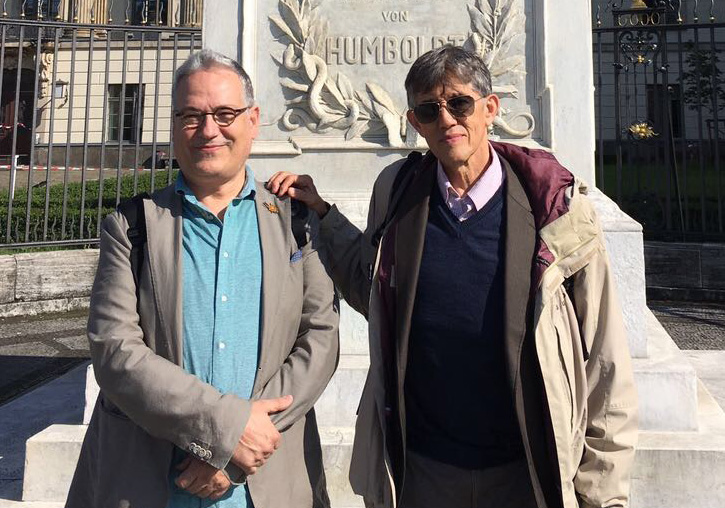Users
Social media
- More details here...
- Address
Parc Científic de la Universitat de València C/
Catedrático Agustín Escardino, 9
46980 Paterna (Valencia) Spain - Email:
iu.i2sysbio@uv.es - Phone:
(+34) 963544810
- Address
Links
Juli Peretó and Antonio Lazcano analyze how Lynn Margulis related cellular evolution and planetary changes
Investigation
Juli Peretó and Antonio Lazcano analyze how Lynn Margulis related cellular evolution and planetary changes
Juli Peretó, from the Department of Biochemistry and Molecular Biology of the Universitat de València (UV), and Antonio Lazcano, from the Department of Evolutionary Biology of the National Autonomous University of Mexico (UNAM), have analyzed the ideas of Lynn Margulis in their historical context and their impact on evolutionary biology. The work, published in the journal BioSystems, reviews the study published in the late 1960s by the famous American biologist and how, despite some aspects of her work being erroneous, she was able to relate cellular evolution and changes in planetary nature.
This work highlights that the studies of Lynn Margulis were a milestone in the world of microbial evolutionary ecology and helped to understand prokaryotic organisms as essential components in the evolution of life on our planet. Aspects in which Lynn Margulis was wrong are also analyzed in detail, such as the identification of spirochetes with the origin of eukaryotic mobility.
Juli Peretó, also a researcher at the Institute of Integrative Systems Biology (I2SysBio, joint UV-CSIC center), and Antonio Lazcano place special emphasis on the relationship that the famous scientist managed to establish between cellular evolution and planetary environmental changes. He proposed that the capacity for respiration and metabolic use of oxygen arose in prokaryotic groups during the development of tolerance to gaseous oxygen. This situation, together with mitochondrial symbiosis, culminated in the development of eukaryotic cells.
In 1967, Lynn Margulis (although she signed it with the surname of her then also well-known husband, Sagan) published “On the origin of mitosing cells” in the Journal of Theoretical Biology. In this study he defended a revolutionary idea for the evolutionary biology of the time. This later gave rise to the Theory of Serial Endosymbiosis or Endosymbiotic Theory (SET) and was based on the idea that eukaryotic organisms evolved from the incorporation of prokaryotic organisms and their subsequent assimilation.
Although he referred to previous ideas that recognized symbiosis as an evolutionary mechanism, Margulis' work was not a simple review of other studies. In fact, his writing is considered a fundamental piece in the study of the origin of cells and the parallel evolution of life and the planet. His evolutionary theory in a planetary context fit into the atmosphere of a time in which scientific research related to the cosmos was flourishing due to the space race then waged between the Soviet Union and the United States.
Article: Lazcano, A. and Peretó, J. Prokaryotic symbiotic consortia and the origin of nucleated cells: A critical review of Lynn Margulis hypothesis. BioSystems 204, 104408 (2021). https://doi.org/10.1016/j.biosystems.2021.104408
Captions:
1. American biologist Lynn Margulis.
2. Researchers Juli Peretó (left) and Antonio Lazcano (right).



